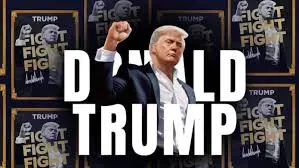What is the background of EDX Markets, the emerging cryptocurrency trading platform supported by Wall Street consortiums?
Original Title: “What Kind of Entity is EDX Markets, the Crypto Trading Platform Backed by Wall Street Consortium?”
Author: 0xmin, TechFlow
As the regulatory storm from the SEC sweeps through the crypto world, a development from a trading platform has caught everyone's attention.
A new cryptocurrency trading platform, EDX Markets, supported by Wall Street powers such as Citadel Securities, Fidelity Investments, and Charles Schwab, has recently begun executing trades and is expected to announce its launch later on Tuesday local time. It has also received funding from Sequoia Capital, Paradigm, and Virtu Financial, specifically serving institutional investors and offering trading in four cryptocurrencies: Bitcoin, Ethereum, Litecoin, and Bitcoin Cash, which are currently not classified as securities by the SEC.
In contrast to the recent news about the SEC's actions against the two major cryptocurrency exchanges, Binance and Coinbase, many speculate: Is the SEC clearing the way for Wall Street's own crypto trading platform?
What exactly is EDX Markets?
In a sense, EDX Markets is indeed the kind of "good child" that the SEC and Wall Street would appreciate.
Unlike traditional cryptocurrency exchanges like Binance and Coinbase, EDX Markets operates on a non-custodial model, meaning it does not hold customers' digital assets during trading, thereby reducing custody risk. EDX Markets primarily facilitates the matching of buy and sell orders, similar to the role of traditional exchanges like Nasdaq or the New York Stock Exchange.
EDX Markets CEO Jamil Nazarali stated that it will collaborate with third-party custodians. It also plans to launch a clearing agency, EDX Clearing, later this year to handle trade settlements on the EDX Markets platform.
Previously, SEC Chairman Gary Gensler indicated that cryptocurrency exchanges must comply with securities laws just like traditional assets, while pointing out that cryptocurrency exchanges combine multiple functions, unlike the New York Stock Exchange, which does not act as a market maker like hedge funds. Implicitly, he believes that current exchanges are too large, combining trading, market making, and custody functions.
EDX Markets seems to aim to address this regulatory criticism by separating market-making and custody functions, transforming into a purely trading platform, akin to the Nasdaq of the crypto world.
Nazarali appears to agree with Gary Gensler's directive, stating, "Regulators expect cryptocurrency exchanges not to have the dual role of broker-dealer, just like the structure of traditional financial markets, which creates an opportunity for EDX. Cryptocurrencies will continue to exist, and to develop into an asset class, traditional financial regulations and investor protection measures need to be adopted, which provides greater space for EDX."
The second characteristic is that EDX Markets is an institutional trading platform, avoiding direct service to retail investors; they provide API-based trading access instead of a traditional front-end user interface.
It is worth mentioning the Wall Street consortium behind EDX Markets.
Schwab and Fidelity are the largest retail brokerage firms in the U.S. Citadel and Virtu are leading market makers on Wall Street.
I consulted my neighbor Zhang, who works as a cleaner on Wall Street, and she explained that there are both old and new powers on Wall Street.
Old Powers: Traditional Wall Street investment banks represented by Morgan Stanley and Goldman Sachs, benefiting from opaque B/C spreads, prefer non-transparent over-the-counter trading.
New Factions: Composed of institutions like Knight Capital, Citadel, DRW, and WorldQuant… They started with significant investments in technology, speed, and talent, and are generally younger. For example, Robinhood's order flow payment partner is Citadel, and Robinhood is a competitor to traditional Wall Street brokerage firms.
The struggle between these two factions is similar to the battle between big banks and big tech companies, each having advantages in regulation and technology.
For instance, in 2018, market maker Citadel launched a CLOB (Central Limit Order Book) for government bonds, benefiting from the opacity of traditional fixed income trading desks (over-the-counter trading, non-electronic trading, no best bid/best offer, no order book), while the CLOB made fixed income a transparent market, undoubtedly challenging the traditionally bank-dominated market.
Thus, the future development path of EDX Markets seems to become clear: to provide a market with higher transparency, meeting regulatory compliance requirements by only facilitating non-custodial trades, serving institutional investors.
EDX Markets is an attempt by the new forces on Wall Street to replicate the traditional financial market structure in the crypto world to meet regulatory requirements, potentially evolving into a small yet alternative crypto Nasdaq.
From a positive perspective, it offers a seemingly compliant channel for traditional funds to enter the market; however, on the other hand, it is not very appealing and does not represent the "future exchange" that the crypto world anticipates. How it will develop in the future remains to be seen.










